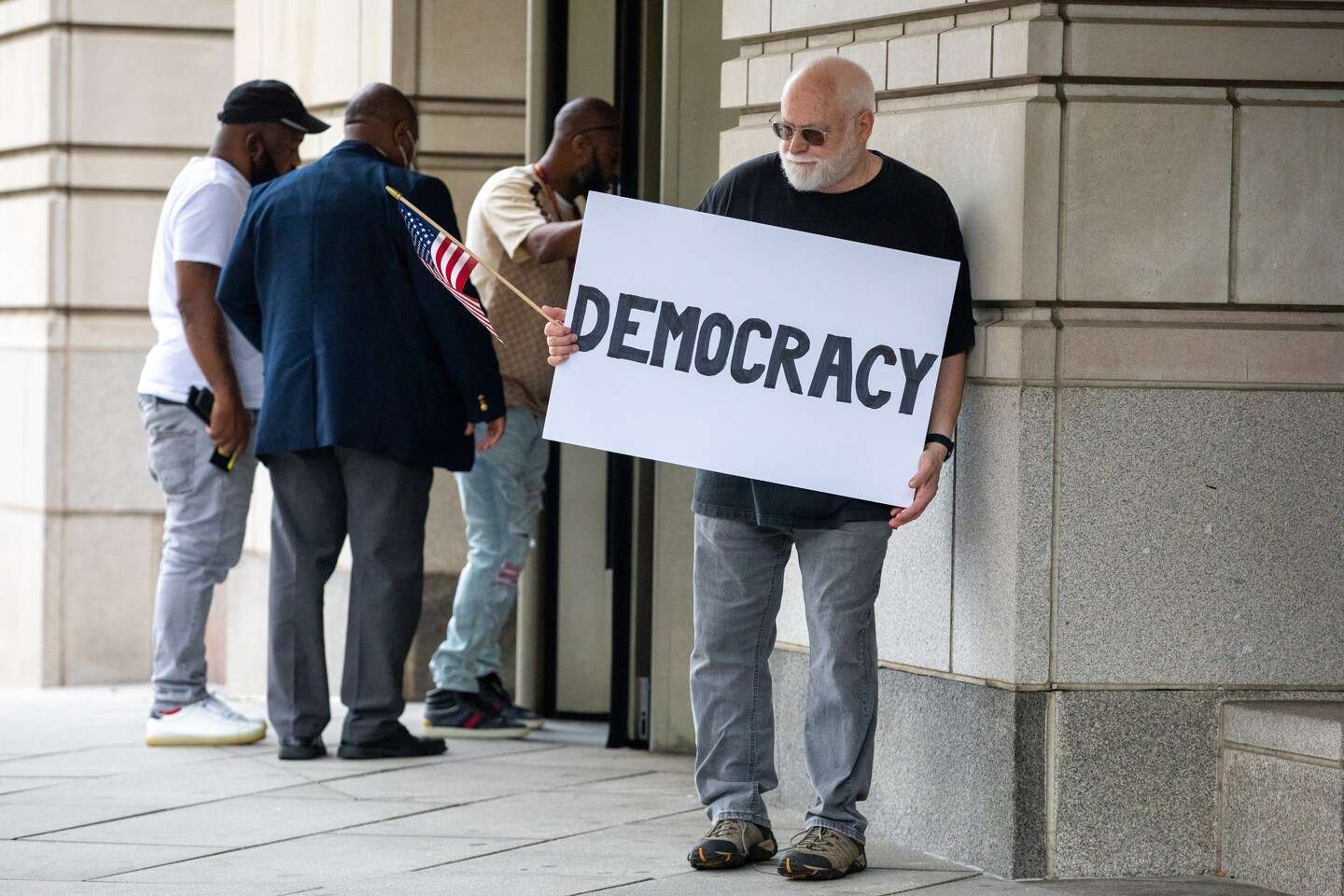Utah voters who tuned into Monday night’s Senate debate were treated to something relatively rare in the 2022 election: a candidate putting Jan. 6, 2021, front and center in his closing argument. Independent Evan McMullin seized upon texts Sen. Mike Lee (R-Utah) sent to the White House indicating a willingness to help President Donald Trump contest the 2020 election results, saying Lee “betrayed your oath to the Constitution.”
Democrats’ failure to make 2022 about the threat to democracy

Despite the well-publicized Jan. 6 hearings, including the likely final one, held last week, the insurrection has not been an overarching focus of Democrats’ 2022 campaign messaging. Politico reported last week that Jan. 6 has featured in less than 2 percent of ads run for House Democrats.
This lacuna in their messaging comes even as most House Republicans supported Trump’s baseless last-ditch election challenges that led to the attack on the Capitol, and even as a majority of the GOP’s most prominent candidates have either denied or questioned the 2020 election results.
Indeed, a new poll reinforces that Democrats haven’t really driven the argument home. Many Americans view Trump as a major threat to democracy. But the Republican Party more broadly? Not so much.
A New York Times/Siena College poll shows that 45 percent of Americans regard Trump as a “major” threat to democracy, while just 28 percent say the same of the GOP.
That 28 percent figure is actually smaller than the percentage who view the Democratic Party as a threat to democracy (33 percent) — despite there being no comparable example of Democrats trying to overturn an election. (And no, Stacey Abrams and Hillary Clinton aren’t analogous.)
Some of this is partisanship — along with Republicans’ successful attempts to play up the issue of voter fraud, despite the utter lack of evidence that it’s a major problem in American elections. Polls have long shown Republicans and Democrats view the other side as a threat to democracy, but for very different reasons.
But if you dig a little deeper, you’ll see that isn’t the full story: It’s also the case that many Democratic voters haven’t been convinced that the problem goes beyond Trump.
The poll shows that 71 percent of Trump 2020 voters regard Democrats as a major threat to democracy. But just 52 percent of Biden voters say the same about the GOP.
And independents are significantly more likely to view Democrats as a major threat than Republicans. Although more than 6 in 10 view each party as at least a minor threat, just 23 percent view the GOP as a major threat, while 31 percent say the same of Democrats. Independents are actually more likely to view voting by mail as a major threat to democracy (31 percent) than the GOP.
The findings aren’t wholly surprising, given that polling late last year showed Americans generally were split on which party was a bigger threat to democracy. But given all what we’ve learned since then from the Jan. 6 hearings, along with all the evidence that the GOP has come to be defined by election denial, it’s striking that this appears to be more of a muted issue for Democratic voters — at least when it comes to the choice before them on Nov. 8.
As Dan Balz wrote last week after the Jan. 6 hearing:
The connection between the attack and the midterm elections couldn’t be clearer. The committee’s hearings have established that President Donald Trump was prepared before the 2020 election to call foul if he lost — that he willfully ignored aides who told him after the voting that he had lost, then brazenly brushed aside those who told him his conspiracies about widespread fraud were unfounded and sometimes ludicrous. Trump continues to traffic in these same false claims today.
Meanwhile, hundreds of Republican candidates who have bought into the lie that the election was stolen are on ballots this fall. If they win, they pose potential threats to future elections. The threats will become even more serious if an unadmonished Trump becomes the party’s 2024 presidential nominee.
Part of the difficulty for Democrats is that these issues are difficult to prosecute and pin down. While many Republicans played into Trump’s election lies and supported his efforts to challenge the election to the Supreme Court and on Jan. 6, they often offered a more watered-down version of the case Trump made. Some have backed off the “stolen” election talk, to some degree. And most of the candidates who went all-in on the stolen election talk are running for safely Republican seats, with a few notable exceptions (see: Doug Mastriano in Pennsylvania; Kari Lake, Blake Masters and Mark Finchem in Arizona; and Jim Marchant in Nevada).
This issue might loom for Trump in a 2024 campaign, given that independents are significantly more likely to view Trump as a major threat to democracy (47 percent) than anybody else.
But the integrity of the democratic process is something Democrats and the Jan. 6 committee have pitched as being of the utmost importance — going to the core of who we are as a country. Yet at this point, with just half of Biden voters and one-quarter of independents saying the GOP is a major threat to democracy, it’s clearly not something they’ve convinced voters is truly at stake in 2022.






